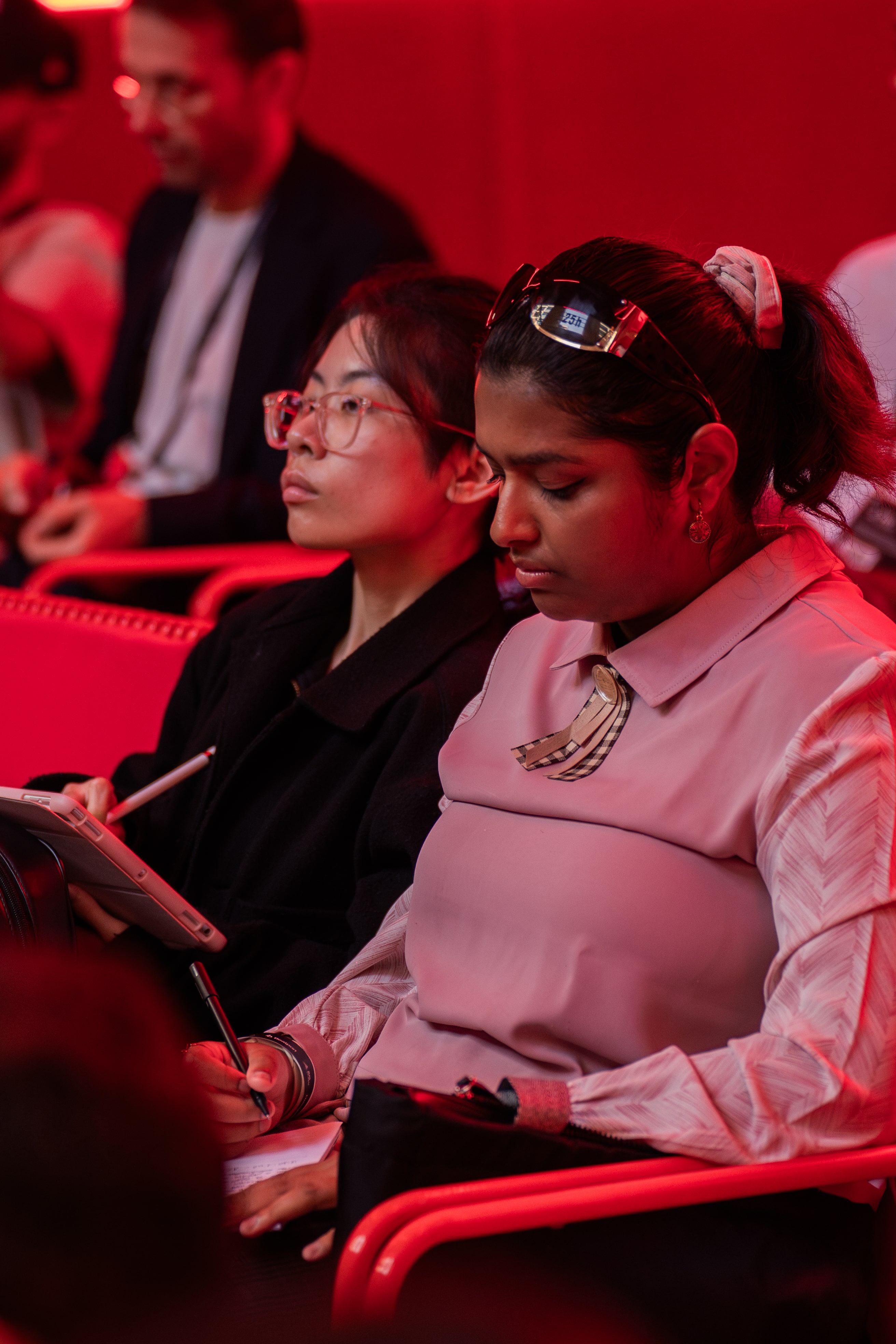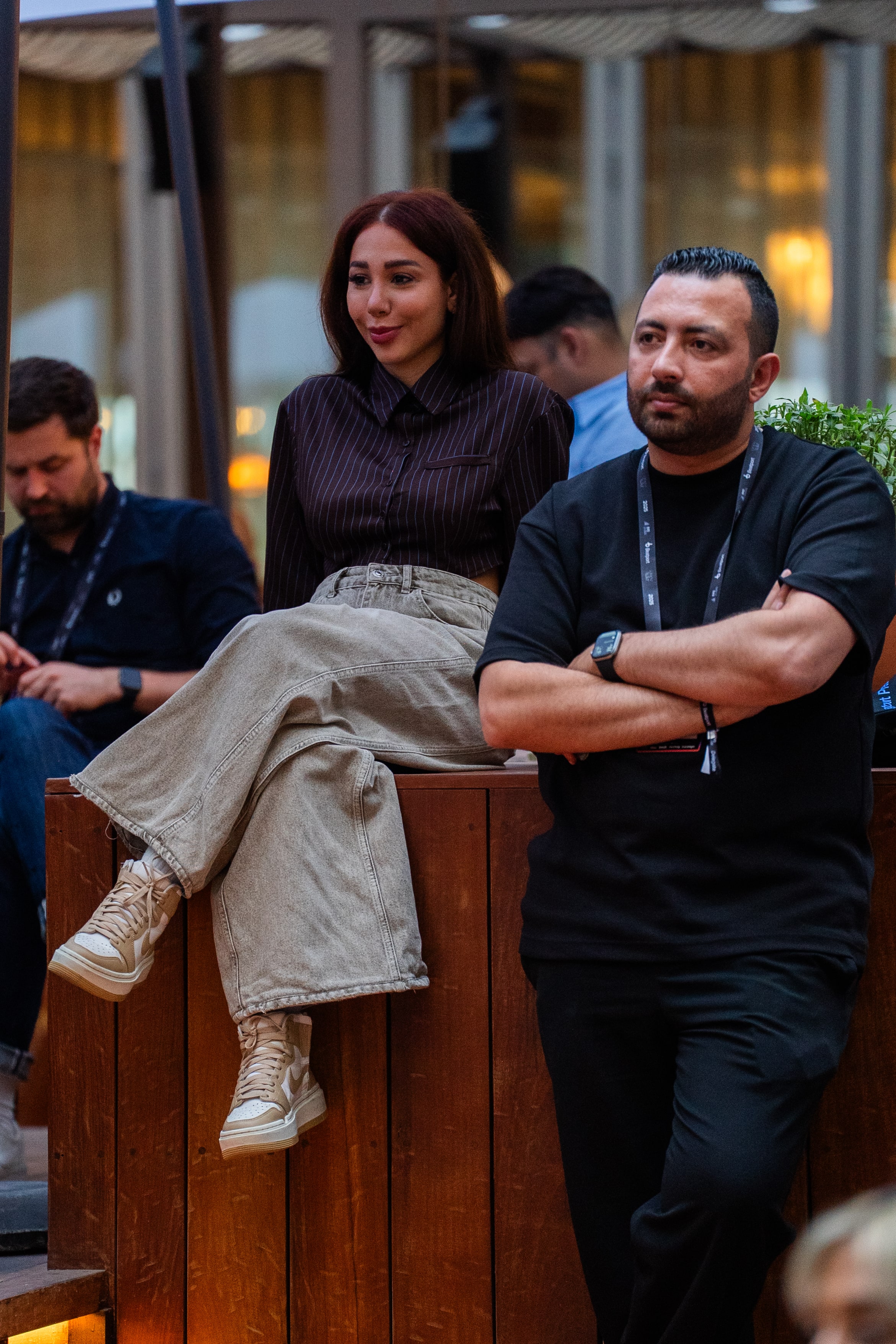November 20, 2025

For two days at Beatport Presents IMS Dubai, artists, founders, festival directors, investors technologists, editors, and cultural leaders gathered to discuss not just the direction of the region’s music ecosystem, but who gets to shape it. The conversations were urgent, honest and occasionally uncomfortable in all the right ways. What emerged was a picture of a region moving past validation and into authorship, past scenes and into infrastructure, past hype and into long-term cultural vision.
Community wasn’t just a theme, it was the backbone of the entire Summit. Across sessions on festivals, artist development, media, technology, and nightlife, leaders stressed that sustainable growth comes not from audiences, but from communities that care, participate, and belong.
As Sofia Ilyas, CCO, Beatport said during The Power of Online Communities:
“We didn’t want surface-level interactions anymore. We wanted people to feel safe, connected, and understood. Community is a responsibility, not a metrics game.”
Pamela Bátiz, Founder, The Artiko, added:
“Artists need to connect with each other to find real opportunities. When they connect, communities grow, and when communities grow, careers grow.”
This sentiment underscored the entire region’s acceleration: connection, not reach, is the new advantage.
If community is the foundation, collaboration is the fuel. What once existed as isolated scenes: Cairo, Riyadh, Beirut, Dubai, Amman, is now becoming a connected creative economy. Festivals are sharing talent cycles, artists are touring regionally, and labels are developing across borders.
As Jean Hajjar, Director of Entertainment, Brag, noted during The Importance & Impact of Homegrown Festivals:
“Putting local, regional, and international artists on the same stages is not just booking. It is cultural exchange, and it expands everyone’s world.”
And in No Scene Without the Scene, Mayssa Karaa, Artistic Director, Berklee Abu Dhabi, reframed the global dream entirely:
“Your global moment comes when you sound more like yourself, not more like the world. When we collaborate across scenes, countries, and genres, that identity gets stronger.”
The region isn’t competing internally. It’s building collectively.

The most impactful ideas aren’t emerging from headline stages, but from rooftops, rehearsal rooms, makeshift studios, and DIY parties. These are the spaces where new sounds form, where young artists experiment, and where the region’s next movements are born.
As Hamdi Ryder, Artist/Promoter, said on No Scene Without the Scene:
“People think the headliner defines the culture. But the real culture is happening in basements and rooftops, where the first ideas take shape.”
Timmy Mowafi, Founder of SceneNoise, put it plainly during The Past, Present & Future of MENA Nightlife:
“Loose crews became movements which became club nights which became festivals. The grassroots built the blueprint for everything you see today.”
Grassroots remains the heartbeat, not the footnote, of regional creativity.
MENA festivals are stepping into the role of cultural storytellers. No longer modelled on templates from other markets, they are building experiences that feel rooted in place, with regional artists, local aesthetics, and narratives that speak from, not for, the Middle East.
As Tito El Kachab, Founder & CEO, Nacelle, shared during The Importance & Impact of Homegrown Festivals:
“We don’t claim to represent the culture. We build the framework for Egyptian and regional artists to introduce their culture to the world.”
And Oana Radu, Festival Manager, UNTOLD Dubai, added:
“We tour not just our festivals, but our artists. The cultural exchange shows the world what this region can do.”
Festivals are no longer destinations, they’re cultural infrastructure.
The Summit made one thing clear: a new wave of producers, DJs, engineers, and creatives is shaping a sound that is digitally native, fearless, multidisciplinary, and rooted in identity.
As Alexander Foley, Head of Audio, SAE Dubai, said on The New Generation of Music Creators:
“Younger producers are not waiting for permission. They are experimenting earlier, learning fast, and entering the industry with a DIY mentality.”
And DJ Dea, Artist, added:
“The new wave is building communities, launching events, and collaborating across borders. They are not waiting for anyone to validate them.”

Sessions across fashion, performance, and digital culture underscored that an artist’s world-building now sits at the intersection of sound, aesthetics, fashion, performance design, and storytelling.
During 'Is the DJ Booth the New Runway? Exploring the Intersection of Electronic Music & Fashion | Presented by Istituto Marangoni Dubai', Akanksha Rohra, Programme Leader BA Fashion Communication & Image, Istituto Marangoni, explained how rapidly the relationship between DJs, visual culture, and fashion is evolving:
“Recently we see DJs developing strong visual identities beyond music, through aesthetics, fashion, even digital avatars.”
The session reinforced that the most compelling artists today aren’t just producing tracks, they’re crafting a coherent, multidimensional universe, blending music with visual and cultural storytelling that audiences can step into.
The conversation around identity has matured beyond “visibility.” Speakers stressed that the power now lies in who controls the narrative, not who appears in it.
As DJ Habibeats, Artist, said during The Habibification of House Music:
“There are so many more Arabs in music, in positions of power. Representation has happened. Now it is about collaboration and making our mark on the world.”
Speakers across sessions noted that global attention matters, but regional storytelling shapes legacy. Local platforms understand context, nuance, and community, and are reframing the narrative from the inside out. Local media isn’t following the story, it’s authoring it.
As Fady Nageeb, Content Director, Dazed ME, added:
“Surface-level coverage leads to surface-level understanding. We must build our own platforms and our own narratives.”
MENA creatives aren’t seeking a seat at the table, they’re building new tables.
AI was discussed across music production, live experiences, distribution, and artist development. The consensus: AI is an accelerant, not a replacement.
In AI in Music Production: Promise vs Pitfalls, Rob Anderson, Product Planning Manager, AlphaTheta, explained how quickly things have evolved:
“Three or four years ago, it just wasn’t possible not at any usable quality anyway. And then almost overnight, these services appeared that could separate audio at a really high quality.”
On how stems reshape what DJs can do:
“Muting the vocal, soloing the vocal, soloing the bassline, these things fundamentally change what’s possible. It takes three- or four-deck mixing into a completely new creative realm.”
Even in the tech–finance space, the message remained grounded. During The Music Investment Landscape: Opportunities & Risks, Jimi Ibrahim, Angel Investor, said:
“No matter how much tech or AI is involved, the human connection closes the deal.”
AI is a tool. Taste is the differentiator.
Across the Summit, one theme kept surfacing from delegates and speakers alike: women weren’t just present, they were leading. From summit sessions on culture, community, fashion, and identity, to the number of women moderating, programming, performing, and shaping conversations across the two days, their roles were visible and deeply felt.
Celina Aoun (Artist Manager, Tete a Tete Lab), expressed her thoughts on the current landscape for women in music:
“I think for women in the music industry we’re in a really defining moment. In the past few years, I’ve met a lot of women in top leadership positions: in management, bookings, festival lineups, production. I think the industry is shifting and creating more space for women who are extremely talented. We have to keep the momentum and continue this progress."
Amira Guetif (Project Manager, Sole DXB), reflected on her experience inside the industry::
“Once you’re in, you realise there aren’t many women, let alone women who can mentor you, prepare you, teach you, or support you. But when you do see them, they see you too. You feel the compassion and the energy they put into making you feel comfortable. It can change everything. I’m sure it’s already changing with what we’re all doing now. The difference is visible."

Multiple speakers highlighted that many of the region’s most influential movements were born not from abundance, but from constraint, improvisation, and instinct.
During Going Against the Grain, Emile Houkayem, Founder & CEO, Aegis Festival, described the reality:
“We launched Aegis in the middle of a war. The uncertainty forced us to innovate and think differently.”
And Sarah Hardan, Co-Founder, The Good Trip, added:
“Our mission is to make people dance. It sounds simple, but it requires bold choices, early bets, and trusting your instincts.”
Creativity here isn’t theoretical, it’s survival, adaptation, and ambition in motion.
As the region’s music ecosystem continues to accelerate, sign-up for all news and updates from Beatport Presents IMS Dubai.
